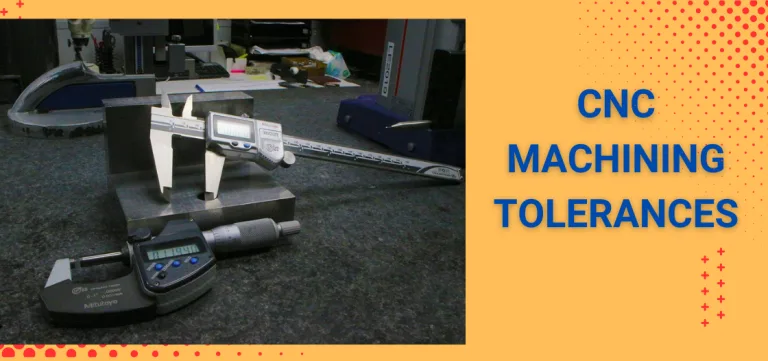The Future of SEO: What to Expect in 2026 and Beyond
Search engine optimization has never been a static field, but the pace of change we’re seeing now is unlike anything before. Between AI breakthroughs, shifting user behavior, and search engines becoming smarter by the day, SEO in 2026 will look very different from what we know today. Businesses, creators, and marketers who adapt early will have a serious advantage — and those who ignore the trends may find themselves buried on page two (or beyond). So what exactly is coming next? Let’s take a look at where SEO is heading and how you can prepare for the future.
The Introduction of AI-Driven Search Behavior
Artificial intelligence isn’t just powering search engines anymore — it’s shaping how users search. Conversational queries, multi-step reasoning, and interactive search results are already becoming the norm. Instead of typing short, choppy terms like “best running shoes,” users are asking fully formed questions, such as “What running shoes are best for people with flat feet who run three times a week?”
By 2026, AI-assisted searching will be even more intuitive. Search tools will understand context, memory, and personal preferences. That means SEO will shift from simple keyword targeting to intent architecture — the ability to structure your content in a way that answers multiple layers of user goals at once.
Search Engines Will Prefer Experience-Based Content
Google’s emphasis on E-E-A-T (Experience, Expertise, Authoritativeness, Trustworthiness) is only going to get stronger. Users want authenticity, and search engines are getting better at detecting it. AI-generated fluff won’t stand a chance against real, experience-backed content that demonstrates genuine insight.
Expect to see more rankings favoring:
- First-hand case studies
- Expert opinions
- Demonstrations and original images
- Personal observations and field-tested advice
Brands will need to humanize their content. The more your writing reflects real-world knowledge, the more search engines will reward you.
The Era of Hyper-Personalized Search Results
With advancements in machine learning and user profiling, two people searching for the exact same query may see completely different results. Search engines will factor in behavior, location, preferences, and personal history to tailor results in real time.
This shift means SEO strategies will need to be flexible and targeted. Broad-stroke optimization won’t work anymore. Instead, niche-focused content, local signals, and behavior-driven insights will dominate.
It’s also why quality regional SEO providers — such as those offering SEO service in Singapore — are increasingly important for businesses targeting specific markets. Customized strategies will outperform generic global ones every time.
Voice and Visual Search Will Go Mainstream
Voice search is no longer a futuristic concept — it’s rapidly becoming a daily practice. By 2026, nearly half of all online searches may be voice-based. That means SEO needs to adapt to natural speech patterns and structured responses.
Visual search is also booming. Platforms like Pinterest, TikTok, and Google Lens have made searching through photos and screenshots second nature. This means:
- Image optimization will be crucial
- ALT text will become more descriptive
- Brands must create visually searchable content
If your website isn’t visually optimized, you’ll be invisible to a massive segment of consumers.
The Rise of Search Beyond Google
For the first time in years, Google isn’t the only game in town. Young audiences are using TikTok, YouTube, Reddit, and even AI chatbots as search engines. By 2026, search will become multi-platform, and SEO will expand beyond traditional ranking factors.
Brands that limit themselves to Google will miss out on entire demographics. The smartest marketers will build search presence across:
- Social platforms
- Video platforms
- AI-driven assistants
- Forums and community sites
This “multi-engine SEO” strategy is already showing massive results for early adopters.
Technical SEO Will Become More Important — Not Less
As search engines become more advanced, the technical foundation of a website will matter even more. Speed, crawlability, and structured data will directly influence your visibility.
Expect the following to become mandatory:
- Lightning-fast load times
- Zero broken links
- Flawless mobile responsiveness
- Clean site architecture
- Schema markup for every page type
Search engines will increasingly rely on machine-readable data, and websites that fail to provide it will fall behind.
The Blending of SEO and User Experience
SEO used to be about pleasing search algorithms. Now, it’s equally about pleasing people. User experience (UX) and SEO will merge into a single discipline by 2026.
Search rankings will increasingly reward:
- Intuitive navigation
- Clear page layouts
- Easy-to-read content
- Fewer pop-ups and distractions
- Fast, seamless browsing
If users stay longer, click deeper, and engage more — your rankings will naturally rise.
Content Refreshing Will Matter More Than Content Volume
Gone are the days when businesses could churn out dozens of blog posts and watch traffic soar. By 2026, content freshness and relevance will matter far more than content quantity.
Search engines will reward sites that:
- Update old content regularly
- Maintain accuracy
- Add new insights to evergreen posts
- Remove outdated or low-quality pages
This creates a cleaner web, and it’s also more efficient for businesses.
Final Thoughts: The Future Belongs to the Adaptable
The next era of SEO will be dynamic, personalized, and deeply intertwined with technology. Search engines will think more like humans, and content creators will need to think more like strategists. If you stay informed, embrace new tools, and build content that genuinely helps people, you’ll be ready for whatever 2026 brings.
SEO isn’t dying — it’s evolving. And the future looks smarter, more intuitive, and more exciting than
Search engine optimization has never been a static field, but the pace of change we’re seeing now is unlike anything before. Between AI breakthroughs, shifting user behavior, and search engines becoming smarter by the day, SEO in 2026 will look very different from what we know today. Businesses, creators, and marketers who adapt early will have a serious advantage — and those who ignore the trends may find themselves buried on page two (or beyond). So what exactly is coming next? Let’s take a look at where SEO is heading and how you can prepare for the future.
The Introduction of AI-Driven Search Behavior
Artificial intelligence isn’t just powering search engines anymore — it’s shaping how users search. Conversational queries, multi-step reasoning, and interactive search results are already becoming the norm. Instead of typing short, choppy terms like “best running shoes,” users are asking fully formed questions, such as “What running shoes are best for people with flat feet who run three times a week?”
By 2026, AI-assisted searching will be even more intuitive. Search tools will understand context, memory, and personal preferences. That means SEO will shift from simple keyword targeting to intent architecture — the ability to structure your content in a way that answers multiple layers of user goals at once.
Search Engines Will Prefer Experience-Based Content
Google’s emphasis on E-E-A-T (Experience, Expertise, Authoritativeness, Trustworthiness) is only going to get stronger. Users want authenticity, and search engines are getting better at detecting it. AI-generated fluff won’t stand a chance against real, experience-backed content that demonstrates genuine insight.
Expect to see more rankings favoring:
- First-hand case studies
- Expert opinions
- Demonstrations and original images
- Personal observations and field-tested advice
Brands will need to humanize their content. The more your writing reflects real-world knowledge, the more search engines will reward you.
The Era of Hyper-Personalized Search Results
With advancements in machine learning and user profiling, two people searching for the exact same query may see completely different results. Search engines will factor in behavior, location, preferences, and personal history to tailor results in real time.
This shift means SEO strategies will need to be flexible and targeted. Broad-stroke optimization won’t work anymore. Instead, niche-focused content, local signals, and behavior-driven insights will dominate.
It’s also why quality regional SEO providers — such as those offering SEO service in Singapore — are increasingly important for businesses targeting specific markets. Customized strategies will outperform generic global ones every time.
Voice and Visual Search Will Go Mainstream
Voice search is no longer a futuristic concept — it’s rapidly becoming a daily practice. By 2026, nearly half of all online searches may be voice-based. That means SEO needs to adapt to natural speech patterns and structured responses.
Visual search is also booming. Platforms like Pinterest, TikTok, and Google Lens have made searching through photos and screenshots second nature. This means:
- Image optimization will be crucial
- ALT text will become more descriptive
- Brands must create visually searchable content
If your website isn’t visually optimized, you’ll be invisible to a massive segment of consumers.
The Rise of Search Beyond Google
For the first time in years, Google isn’t the only game in town. Young audiences are using TikTok, YouTube, Reddit, and even AI chatbots as search engines. By 2026, search will become multi-platform, and SEO will expand beyond traditional ranking factors.
Brands that limit themselves to Google will miss out on entire demographics. The smartest marketers will build search presence across:
- Social platforms
- Video platforms
- AI-driven assistants
- Forums and community sites
This “multi-engine SEO” strategy is already showing massive results for early adopters.
Technical SEO Will Become More Important — Not Less
As search engines become more advanced, the technical foundation of a website will matter even more. Speed, crawlability, and structured data will directly influence your visibility.
Expect the following to become mandatory:
- Lightning-fast load times
- Zero broken links
- Flawless mobile responsiveness
- Clean site architecture
- Schema markup for every page type
Search engines will increasingly rely on machine-readable data, and websites that fail to provide it will fall behind.
The Blending of SEO and User Experience
SEO used to be about pleasing search algorithms. Now, it’s equally about pleasing people. User experience (UX) and SEO will merge into a single discipline by 2026.
Search rankings will increasingly reward:
- Intuitive navigation
- Clear page layouts
- Easy-to-read content
- Fewer pop-ups and distractions
- Fast, seamless browsing
If users stay longer, click deeper, and engage more — your rankings will naturally rise.
Content Refreshing Will Matter More Than Content Volume
Gone are the days when businesses could churn out dozens of blog posts and watch traffic soar. By 2026, content freshness and relevance will matter far more than content quantity.
Search engines will reward sites that:
- Update old content regularly
- Maintain accuracy
- Add new insights to evergreen posts
- Remove outdated or low-quality pages
This creates a cleaner web, and it’s also more efficient for businesses.
Final Thoughts: The Future Belongs to the Adaptable
The next era of SEO will be dynamic, personalized, and deeply intertwined with technology. Search engines will think more like humans, and content creators will need to think more like strategists. If you stay informed, embrace new tools, and build content that genuinely helps people, you’ll be ready for whatever 2026 brings.
SEO isn’t dying — it’s evolving. And the future looks smarter, more intuitive, and more exciting than
Search engine optimization has never been a static field, but the pace of change we’re seeing now is unlike anything before. Between AI breakthroughs, shifting user behavior, and search engines becoming smarter by the day, SEO in 2026 will look very different from what we know today. Businesses, creators, and marketers who adapt early will have a serious advantage — and those who ignore the trends may find themselves buried on page two (or beyond). So what exactly is coming next? Let’s take a look at where SEO is heading and how you can prepare for the future.
The Introduction of AI-Driven Search Behavior
Artificial intelligence isn’t just powering search engines anymore — it’s shaping how users search. Conversational queries, multi-step reasoning, and interactive search results are already becoming the norm. Instead of typing short, choppy terms like “best running shoes,” users are asking fully formed questions, such as “What running shoes are best for people with flat feet who run three times a week?”
By 2026, AI-assisted searching will be even more intuitive. Search tools will understand context, memory, and personal preferences. That means SEO will shift from simple keyword targeting to intent architecture — the ability to structure your content in a way that answers multiple layers of user goals at once.
Search Engines Will Prefer Experience-Based Content
Google’s emphasis on E-E-A-T (Experience, Expertise, Authoritativeness, Trustworthiness) is only going to get stronger. Users want authenticity, and search engines are getting better at detecting it. AI-generated fluff won’t stand a chance against real, experience-backed content that demonstrates genuine insight.
Expect to see more rankings favoring:
- First-hand case studies
- Expert opinions
- Demonstrations and original images
- Personal observations and field-tested advice
Brands will need to humanize their content. The more your writing reflects real-world knowledge, the more search engines will reward you.
The Era of Hyper-Personalized Search Results
With advancements in machine learning and user profiling, two people searching for the exact same query may see completely different results. Search engines will factor in behavior, location, preferences, and personal history to tailor results in real time.
This shift means SEO strategies will need to be flexible and targeted. Broad-stroke optimization won’t work anymore. Instead, niche-focused content, local signals, and behavior-driven insights will dominate.
It’s also why quality regional SEO providers — such as those offering SEO service in Singapore — are increasingly important for businesses targeting specific markets. Customized strategies will outperform generic global ones every time.
Voice and Visual Search Will Go Mainstream
Voice search is no longer a futuristic concept — it’s rapidly becoming a daily practice. By 2026, nearly half of all online searches may be voice-based. That means SEO needs to adapt to natural speech patterns and structured responses.
Visual search is also booming. Platforms like Pinterest, TikTok, and Google Lens have made searching through photos and screenshots second nature. This means:
- Image optimization will be crucial
- ALT text will become more descriptive
- Brands must create visually searchable content
If your website isn’t visually optimized, you’ll be invisible to a massive segment of consumers.
The Rise of Search Beyond Google
For the first time in years, Google isn’t the only game in town. Young audiences are using TikTok, YouTube, Reddit, and even AI chatbots as search engines. By 2026, search will become multi-platform, and SEO will expand beyond traditional ranking factors.
Brands that limit themselves to Google will miss out on entire demographics. The smartest marketers will build search presence across:
- Social platforms
- Video platforms
- AI-driven assistants
- Forums and community sites
This “multi-engine SEO” strategy is already showing massive results for early adopters.
Technical SEO Will Become More Important — Not Less
As search engines become more advanced, the technical foundation of a website will matter even more. Speed, crawlability, and structured data will directly influence your visibility.
Expect the following to become mandatory:
- Lightning-fast load times
- Zero broken links
- Flawless mobile responsiveness
- Clean site architecture
- Schema markup for every page type
Search engines will increasingly rely on machine-readable data, and websites that fail to provide it will fall behind.
The Blending of SEO and User Experience
SEO used to be about pleasing search algorithms. Now, it’s equally about pleasing people. User experience (UX) and SEO will merge into a single discipline by 2026.
Search rankings will increasingly reward:
- Intuitive navigation
- Clear page layouts
- Easy-to-read content
- Fewer pop-ups and distractions
- Fast, seamless browsing
If users stay longer, click deeper, and engage more — your rankings will naturally rise.
Content Refreshing Will Matter More Than Content Volume
Gone are the days when businesses could churn out dozens of blog posts and watch traffic soar. By 2026, content freshness and relevance will matter far more than content quantity.
Search engines will reward sites that:
- Update old content regularly
- Maintain accuracy
- Add new insights to evergreen posts
- Remove outdated or low-quality pages
This creates a cleaner web, and it’s also more efficient for businesses.
Final Thoughts: The Future Belongs to the Adaptable
The next era of SEO will be dynamic, personalized, and deeply intertwined with technology. Search engines will think more like humans, and content creators will need to think more like strategists. If you stay informed, embrace new tools, and build content that genuinely helps people, you’ll be ready for whatever 2026 brings.
SEO isn’t dying — it’s evolving. And the future looks smarter, more intuitive, and more exciting than ever.




